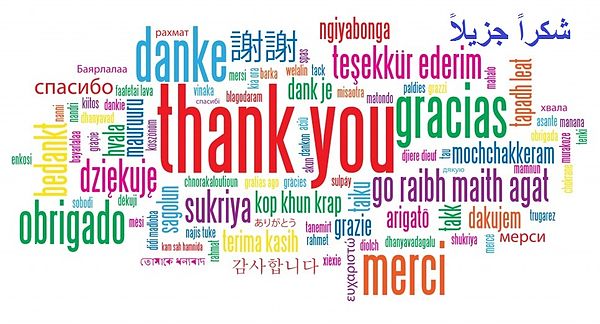User:NSaad (WMF)/perception report draft
Foreword
What we do matters most, but how we talk about what we do matters almost as much. The Wikipedia Education Program at the Wikimedia Foundation enjoys a global view of education activities across the Wikimedia movement, and from this vantage point, it is clear to us that the work already accomplished via education programs — the content created, the relationships forged, and the learning achieved — is immense and valuable. But we are also aware that we could be doing much more to support and nurture this work across our communities, and to effectively communicate the value of Wikimedia in education to teachers and policymakers. This is why we set out to do this survey and to produce this report.
Although more work remains to engage the education sector beyond our active networks, this study reveals some interesting awareness and perception gaps within our existing community of practice, and even within the Wikimedia Foundation itself. As the Wikimedia movement organizes itself around the ambitious and visionary goals laid out in the 2030 Strategic Direction, the findings presented in this report will help us to refocus the message and identity of the Education Program, to more effectively advocate for needed tools and infrastructure, and to revitalize the resources and communication channels that we maintain for educators and program leaders across the world.
We see this as groundwork for what we believe to be an exciting new chapter for the Wikimedia movement and education: a time where contribution to Wikimedia projects is expanding beyond Wikipedia into platforms like Commons and Wikidata; and where steadily growing acceptance (even embrace) of Wikipedia by educators sets the stage for a more expansive conversation about the value that Wikimedia projects brings to student learning, digital literacy, and the cultivation of 21st century skills. This report is of course just a snapshot in time from a small (but diverse) set of respondents. As you read, questions and ideas may arise for how some of these learnings might be translated into action and response. We encourage you to share your perspectives in Wikimedia forums, on social media, in community and professional gatherings, and by continuing the conversation with us here at the Wikimedia Foundation.
Ben Vershbow
Lead Programs Manager (libraries, education, cultural heritage)
Wikimedia Foundation
Acknowledgements
The education team would like to thank:
The Wikimedia community who helped us to translate the survey into 10 languages.
Joseph Allemandou, Juliana Bastos Marques, Nurunnaby Hasive, Reem Al-Kashif,Vahid Masrour, Vira Motorko, Nebojša Ratković, Liang-chih Shang Kuan, Gabriel Thullen.
The WMF Learning and Evaluation team, particularly Edward Galvez for his detailed review of the survey and recommendations, and Maria Cruz who graciously helped with the design at the last minute.
Aeryn Palmer for their legal review, support and recommendations.
The staff, affiliates and educators who reviewed the first version of the survey and provided helpful feedback.
Those who helped us share the survey within their communities.
All those who took the survey, helping us to understand and improve our support, communications and resources.

Definitions of Key Terms
Affiliates: Organizations that focus on supporting volunteer activities and promoting the use of the Wikimedia platform to geographical or thematic populations. They can be formal, such as “chapters”, that work with budgets and complex programs, or nimbler such as “User Groups”. They collaborate with volunteers to carry out their projects, often using funding -provided by the Wikimedia Foundation or other sources- to promote the creation and use of contents on the Wikimedia platform.
Education: In the context of the “Wikipedia Education Program”, Education refers mostly (but not exclusively) to activities that happen within the sphere of formal and informal education systems, at the elementary, secondary and tertiary level (even at the PhD level), and in extra curricular activities in the forms of clubs, senior citizen programs or “Wiki Camps” where a learning component is involved.
Program Leader: A volunteer that endeavors to create activities that bring Wikimedia projects to the educational context. If the program leader is not an educator themselves, they will partner with and collaborate closely with institutions, administrators and educators to carry out those activities.
Wikimedia Foundation: The Wikimedia Foundation, Inc. is a nonprofit charitable organization dedicated to encouraging the growth, development and distribution of free, multilingual, educational content, and to providing the full content of these wiki-based projects to the public free of charge. The Wikimedia Foundation operates some of the largest collaboratively edited reference projects in the world, including Wikipedia, a top-ten internet property.
Wikimedian: Wikimedian: a person who participates in Wikimedia projects or the Wikimedia movement, generally a broader definition than a “Wikipedian”. Wikimedians contribute to projects hosted by the Wikimedia Foundation or participate in the mission, activities or values of the Wikimedia movement at large.
Wikipedia: “The free encyclopedia that anyone can edit”. One of the most accessed resources of knowledge on the Internet. 17 years in the works, it has been built by volunteers generously sharing and structuring knowledge for everyone to access. Everyone is invited to partake in the creation of its content (taking in considerations its norms).
Wikipedia Education Program: A planned series of activities in the educational context that involve work by students (often accompanied by their educators) to contribute to Wikimedia projects while they gain valuable skills relevant for the 21st century. Most of the time, they are initiated by volunteers that have experience with the Wikimedia platform, but they also have been initiated by educators, students, or organizations that see the value in bringing one of the sister projects to the educational context.
Wikipedia Sister Projects: While Wikipedia is the most well known and used project of the Wikimedia platform, several other projects have emerged over time to satisfy the needs of other types of knowledge. For example, Wikibooks allows people to create online books, Commons is a multimedia repository of contents that can be freely used (on other projects and for almost anything else) … more information.
